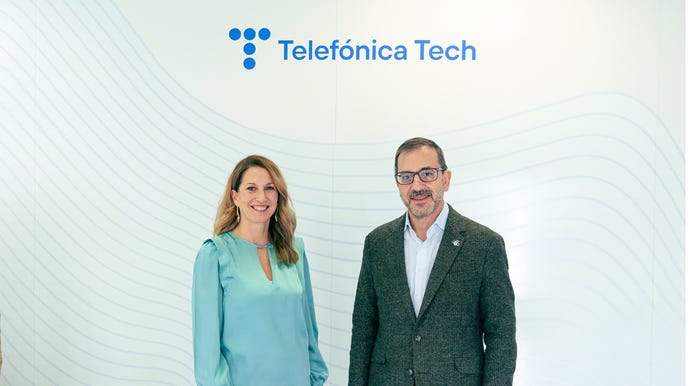
Connects decision-makers and solutions creators to what's next in quantum computing
International Year of Quantum Launched by UNInternational Year of Quantum Launched by UN
Industry experts weigh in on the significance of raising public awareness of quantum technologies

The United Nations Tuesday officially inaugurated the International Year of Quantum Science and Technology (IYQ25) at the U.N. Educational, Scientific and Cultural Organization (UNESCO) headquarters in Paris.
The opening ceremony kicked off a two-day event marking the start of a global initiative to celebrate a century of quantum mechanics and its profound impact on modern technology.
It features keynote speeches by Nobel laureates, discussions on inclusivity and equity in science and panels exploring quantum science's contributions to sustainable development and ethical innovation.
The U.N. proclaimed 2025 as the International Year of Quantum Science and Technology to highlight the importance of quantum science and its applications in achieving the 2030 Agenda for Sustainable Development and its 17 sustainable development goals.
This year was chosen because 2025 marks 100 years since the initial development of quantum mechanics. It also marks a significant point in quantum computing and other quantum technologies achieving real-life applications.
Industry experts have weighed in on the significance of the event.
Mitra Azizirad, president and chief operating officer, Microsoft Strategic Missions and Technologies
"We are at the advent of the reliable quantum computing era, making this a critical time for business and government leaders to understand better the application and real-world business value quantum will open up.
We are excited to partner with UNESCO and the American Physical Society to support the International Year of Quantum and engage with communities worldwide to scale awareness on how quantum science and applications will transform industries."
Stefan Leichenauer, vice president of engineering, SandboxAQ
"The U.N.'s recognition of 100 years since the birth of quantum mechanics marks a significant milestone in scientific progress. Many modern technologies, from the laser to the MRI machine, are based on quantum principles. Today, we are approaching a level of mastery over the quantum world that will enable a whole new set of applications, including quantum computing.
It has taken 100 years to unlock all of this quantum potential because we had to wait for another major technology revolution: AI is the secret to unlocking all these new applications. With the rise of quantitative AI and large quantitative models, we can get unprecedented control over quantum devices, allowing us to address real-world challenges.
In 2025, we can expect to see new quantum technologies begin to hit the market in a big way, especially when it comes to quantum sensors, which will revolutionize industries such as health care and navigation."
Karina Robinson, senior advisor, Multiverse Computing and founder of The City Quantum and AI Summit
"The IYQ25 will help bring quantum into the news feed and hopefully help the public understand that quantum hardware isn't the only story in town. Quantum software, quantum sensors and quantum communication have been advancing apace, while the overlap with AI is bringing great new opportunities."
Celia Merzbacher, executive director, QED-C
"At QED-C, we believe the International Year of Quantum Science and Technology will be critical to spreading the message of the potential of quantum technology to all corners of the globe. Our organization aims to grow the global quantum ecosystem, and while it is our passion, we recognize that for many people, quantum is an unfamiliar term.
Emphasizing all that quantum technology has done so far and all that it may do in the not-so-distant future will go a long way toward educating the public about quantum's value and helping spur more students to enter the field and more investment into the industry, thereby speeding progress toward a quantum-enabled future."
Krysta Svore, technical fellow and vice president, Microsoft Quantum
"Advancements in quantum technology are accelerating rapidly, and we stand on the brink of a transformative era.
Global initiatives like IYQ are essential to ensuring that people from all corners of the world can understand and harness quantum computing's incredible potential. By fostering widespread awareness and education, we can collectively prepare to leverage this revolutionary technology for the benefit of all humanity."
Chris Ballance, co-founder and CEO, Oxford Ionics
"Over the past year, we've seen the customer appetite for quantum computing switch on. But for the first time, 2025 will see quantum computers leave labs and research institutions and deploy into the networks and data centers of real-world customers. For quantum computing companies, this will be a real test of steel. The industry has been, at times, dominated by those who talk a good talk. This year, we'll see which companies can also walk the walk."
Ted Letavic, corporate fellow, GlobalFoundries
"2025 is a turning point for quantum computing, not just because of the U.N.'s International Year of Quantum, but also because we're finally seeing decades of research translate into scalable manufacturing. We're working with partners to move quantum from theory to reality, from laboratory to foundry, proving that we can produce quantum components using current semiconductor processes. That's a game-changer.
One of the biggest obstacles to quantum has always been scaling—building reliable, cost-effective devices at volume. This year, we're starting to break through that barrier. We're moving beyond the 'science fiction' phase of exotic materials and lab prototypes into a time where quantum chips can be built using proven fabrication techniques. The innovations happening now will allow quantum platforms to tackle problems that today's supercomputers couldn't solve in a lifetime."
Todd Moore, vice president of data security products, Thales
"In 2024, the U.S. NIST released its first sets of post-quantum encryption algorithms. Before these standards were released, many enterprises needed help grasping the need for post-quantum cryptography (PQC).
NIST's standards have brought urgency to address the impact of quantum advancements and the need to address these threats. Even though the TLS and SSH protocols have been updated to meet NIST's new standards, NIST is already working on its next set of algorithms, meaning that the algorithms implemented today will be different by the time the threat of quantum computing arrives. This points to the importance of crypto agility in adapting to these evolving security recommendations."
Chris Erven, CEO and co-founder, KETS Quantum Security
"Beyond the scientific achievements, which we welcome celebrating, the U.N. officially naming 2025 as the Year of Quantum must also serve as a wake-up call to the looming threat posed to global security. It's particularly pertinent as the tech industry seems convinced quantum computers are two decades away. Realistically, the first will come online in the next five years. The only question is which country will develop one first. 'Year of Quantum' isn't just a slogan; it's proof that the time is now to future-proof secure connectivity and communication."
Joseph Carson, chief security scientist and advisory CISO, Delinea
"2025 is set to be the year when people wake up not only to the potential of quantum technology but also become acutely aware of the threats it opens doors to. As cyber adversaries continue to use AI and other advanced technologies to break into systems, it will be critical for current cryptography to evolve and prevent access for unauthorized individuals. This is critical, especially for persistent data, such as health or financial records, that must be retained and protected for the next 10-15 years.
While authentication remains important, we see authorization as an emerging and continued trend that will help organizations face the current challenges posed by new technologies. With the introduction of digital wallets that hold identity documents and passkeys internally, authorization will move outside organizations and create an external layer of protection."
Tim Callan, chief compliance officer, Sectigo
"Transitioning to quantum-resistant cryptography will become a mainstream boardroom discussion. No longer a buzzword or a topic to be tabled, becoming crypto-agile to prepare for post-quantum encryption will be a key focus for the C-suite this year. This shift has massively been supported by NIST's development of quantum-resistant encryption and its impactful educational campaign on quantum's threat to decryption. They have now transformed a once theoretical discussion about decryption into a mainstream business focus."
Graeme Malcolm, CEO and founder, M Squared Lasers
"Although the quantum sector is often subject to hype and sensationalized 'breakthroughs,' real progress is happening. We're moving beyond theoretical milestones toward practical applications, with quantum predicted to unlock $850 billion in economic value by 2040 in fields including drug discovery, materials science and climate modeling.
As with all frontier technology, the path ahead is yet to be determined, and new discoveries will continue to shift expectations and timelines. However, what is certain is that as quantum continues to progress, the scale of investment, infrastructure, and scientific progress required will make global and industry collaboration essential."
Daniel Shiu, chief cryptographer, Arqit
"This is a defining moment for technology. As quantum computing progresses, it challenges the effectiveness of current cryptographic systems. Organizations must review their encryption protocols as soon as possible. Many are still unaware of what methods are in place – but as quantum technology advances, it's important to prioritize which systems need updating.
While the encryption of something like a Daytime Protocol may not be an immediate concern, securing sensitive data – such as the migration of file services to the cloud – should be a top priority. Given quantum's potential to redefine encryption security, businesses must act decisively now to minimize the impact of security disruptions later."
Kevin Curran, IEEE senior member and professor of cybersecurity, Ulster University
"This marks a pivotal moment for the science, technology and engineering industries. It acknowledges the progress that has been made, largely driven by improvements in qubit quality, error rates and scalability. Over the past few years, the availability of quantum computing through cloud services has also democratized access, enabling more widespread research and development. There has been considerable growth in hybrid quantum-classical algorithms, which combine classical and quantum computing strengths to tackle complex problems.
"All these developments signal a shift towards more practical and impactful quantum computing applications for 2025 and beyond. The development of new quantum algorithms could significantly enhance the utility of quantum computers. Predicting a near-term breakthrough in quantum computing is complex due to the interplay of technological advancements and theoretical innovations. While many experts suggest that practical, scalable quantum computers that consistently outperform classical systems may still be a few years away, there is optimism about achieving specific milestones soon."
Jon West, senior associate at Reddie & Grose
"When we talk about quantum technology, people's minds often jump straight to the hype in quantum computers and maybe even quantum cryptography. While there is still much innovative work to do in improving qubit stability and quantum error correction for quantum computers, lesser-known technology in quantum sensing applications is ready to revolutionize many different sectors. For example, it includes medical brain imaging devices through quantum-enabled systems for positioning, navigation, and timing that can improve performance in indoor/underwater environments and overcome signal disruption/hostile jamming concerns.
The U.N.'s International Year of Quantum will raise public awareness of the impact that applications of quantum science are already having and provide an opportunity to deepen the global partnerships and funding needed to unleash the quantum revolution across the globe."
Rahul Tyagi, CEO, SECQAI
"2025 marks a pivotal year for the field of quantum science as we celebrate a century since the foundational principles of quantum mechanics were first established. The U.N.'s declaration of 2025 as the International Year of Quantum underscores the transformative potential of quantum technologies in addressing some of the most pressing challenges of our time. From revolutionizing computing and cryptography to enhancing precision in medical diagnostics and environmental monitoring, quantum science is poised to drive unprecedented advancements across various sectors. This global recognition not only highlights the achievements of the past but also sets the stage for future innovations that will shape the next century.
The convergence of public and private efforts in quantum research and development will accelerate the commercialization of quantum technologies, fostering economic growth and societal benefits. By raising public awareness and encouraging international cooperation, the U.N.'s initiative will help bridge the gap between scientific discovery and practical application, ensuring that the benefits of quantum advancements are accessible to all. This year is a testament to the remarkable journey of quantum science and a call to action for continued investment and exploration in this groundbreaking field."
Ashish Devalekar, senior vice president and head of Europe, Mphasis
"One hundred years ago, quantum physics changed the way how we understand the sub-atomic realm. This pivotal discovery has been a game changer for technology ever since. The last decade has seen pivotal moments in the area of quantum computing, communication, and sensing. The gradual but accelerating pace of inventions and discoveries continued in 2024 with NIST finalizing the post-quantum cryptography (PQC) algorithms; scalable error correction frameworks by the likes of Google for a fault-tolerant quantum computer (FTQC) and new technology roadmaps; algorithmic discoveries for FTQC era; significant progress in hybrid quantum-classical and quantum-inspired technology among many others.
2025 will build on this continued progress, starting with the adoption of PQC and quantum key distribution (QKD) by industry. Pharmaceutical, financial services and logistics sectors will see increased exploration of quantum-enhanced optimization, simulation, and AI in preparation for the transition to the post-quantum era. This transition in the short term will be led by the technical maturity achieved in hybrid quantum-classical and quantum-inspired systems and in the long term by FTQC, which will be nearer by 2025, thanks to scalable architecture enabled through modular design and error correction. Academia has been at the forefront of R&D and talent development in this field and 2025 will see a growth in quantum-ready engineers, researchers, and business experts. Such growth in talent is required to complement the corresponding increase in the utilization of quantum cloud services in 2025 for use case R&D and implementation."
Mandy Birch, founder and CEO, TreQ
"2024 saw enormous strides made in quantum computing. Google's Willow Chip, for example, solved a complex calculation in under five minutes that would have taken the fastest supercomputer around ten septillion years. As innovation accelerates, early adopters of quantum will disproportionately benefit, reaping up to 90% of its value.As a result, the interest and investment from governments, organizations, and institutions will continue at pace into 2025. This is underscored by the year marking the U.N.'s International Year of Quantum. For governments, organizations, and enterprises looking to seize upon quantum computing's potential, there has never been a better time than now."
Greg Wetmore, vice president of product development, Entrust
"The timing of the U.N. declaring 2025 the International Year of Quantum could not be more prescient. A sea change is currently underway within the technology industry regarding post-quantum readiness, particularly as it relates to post-quantum security. The discussion around post-quantum was once theoretical. Now, the considerations are more practical, with companies asking what they need to do to prepare and how to do so.This is reflected in a changing regulatory approach to post-quantum, with NIST AND publishing the first three cryptographic standards designed to resist an attack from quantum computers in August 2024, in addition to the European Union's NIS2 recommendations on quantum-safe encryption, which came into force in October 2024.This is a positive development, but one which organizations need to match by readying their security infrastructure for the post-quantum transition now. This requires the preparation of a comprehensive and agile cryptographic strategy, helping to identify and protect locations where sensitive data is housed, and to safely switch these protections to quantum-resistant algorithms when required.The reality on the ground, however, indicates a worrying lack of readiness: 27% of organizations have yet to consider the post-quantum threat, and 23% are aware but haven't started planning. Hopefully, the publicity the International Year of Quantum will generate will encourage organizations to ready their security infrastructure for the transition as soon as possible."
About the Author
You May Also Like






